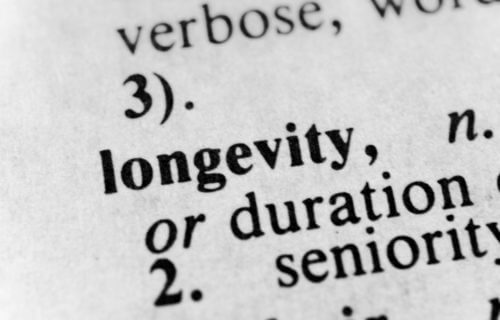‘There is no internal clock of aging that you can regulate with a simple switch.’
BONN, Germany — Longevity treatments may be in high demand, but a new study finds many of them don’t do what they promise. Researchers in Germany have found that three popular anti-aging strategies fail to actually slow the hands of time.
During their review, a team from the German Center for Neurodegenerative Diseases (DZNE) developed a new way to measure aging. Instead of simply looking at lifespan, the team focused on the age-related changes that take place in a wide range of bodily functions over time. Using this measure, they examined the effectiveness of intermittent fasting and two anti-aging treatments which target cell metabolism and growth hormones, respectively.
Results show that each longevity strategy was largely ineffective when it comes to slowing the aging process.
“There is no internal clock of aging that you can regulate with a simple switch – at least not in the form of the treatments studied here,” says Dr. Dan Ehninger of the DZNE, the initiator of the study, in a media release.
“We chose three regulators for our interventions that many experts believe slow down aging,” explains Prof. Dr. Martin Hrabě de Angelis, head of the Institute of Experimental Genetics and director of the German Mouse Clinic at Helmholtz Munich.
Specifically, study authors note that intermittent fasting focuses on restricting calorie consumption to a short daily window. Meanwhile, the second treatment targets a central node of cell metabolism (mTOR). The anti-aging drug rapamycin is one of the prominent compounds targeting mTOR.
Finally, the study examined the interference in the release of growth hormones. Although there are treatments for humans which target this anti-aging pathway, their effectiveness is still unclear.
Aging is not just about lifespan
“Many researchers in recent decades have used lifespan as an indirect measure of aging,” explains Ehninger.
“It is often assumed that if they just live longer, they will also age more slowly. But the problem is that mice, like many other organisms, do not die from general old age, but from very specific diseases.”
Researchers add that 90 percent of aging mice die from tumors that form over time.
“So, if you were to look at the whole genome for factors that make mice become long-lived, you would like find many genes that suppress tumor development – and not necessarily genes that play a general role in aging,” Ehninger continues.
With that in mind, the team started looking at how these anti-aging treatments impacted the bodily functions of the mice, not just their chronological age.
“You can think of it as a complete health status survey,” says Hrabě de Angelis. “The health check results in a compendium of hundreds of factors covering many areas of physiology.”
Researchers kept track of how the animals’ bodies changed during each stage of life. After applying the anti-aging treatments, they looked for signs that the treatments slowed down biological changes within the mice and prevented the deterioration of important physiological functions.
Unfortunately, the results were clear — all three anti-aging treatments did not slow down aging at a biological level.
Although the mice may have physically looked younger, Ehninger says “this effect was not due to slowing down aging, but rather due to age-independent factors.”
“The fact that a treatment already has its effect in young mice – prior to the appearance of age-dependent change in health measures – proves that these are compensatory, general health-promoting effects, not a targeting of aging mechanisms.”
The findings are published in the journal Nature Communications.


This is not true. My dogs have been on this medicine for years and I have the vet reports to show you that it reverses heart disease. There are so many benefits to Rapamycin only someone not using it would believe the opposite. Also, recent reports say it doesn’t work for men. WRONG. All 5 of my dogs are male. I am also male. The stuff works.
If you want to see my dog’s vet records, contact me.